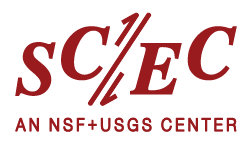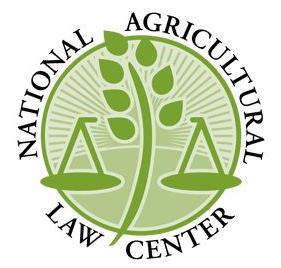Related Research Articles

The Southern California Earthquake Center (SCEC) is a collaboration of more than 1,000 scientists across 100 research institutions with a mission to: conduct research on earthquakes in Southern California and elsewhere by gathering data, conducting theoretical studies, and performing computer simulations; integrate information into a comprehensive, physics-based understanding of earthquake phenomena; and communicate that understanding to end-users and society at large as useful knowledge for reducing earthquake risk and improving community resilience..

.tr is the Internet country code top-level domain (ccTLD) for Turkey. It is administered by trABİS and managed by the Computer Center DNS Group of the ICT Authority. The domain was formerly administered by NIC.tr and managed by the Turkey Internet Society until September 2022.
The United States National Agricultural Library (NAL) is one of the world's largest agricultural research libraries, and serves as a national library of the United States and as the library of the United States Department of Agriculture. Located in Beltsville, Maryland, it is one of five national libraries of the United States. It is also the coordinator for the Agriculture Network Information Center (AgNIC), a national network of state land-grant institutions and coordinator for the U.S. Department of Agriculture (USDA) field libraries.
The National Digital Information Infrastructure and Preservation Program (NDIIPP) of the United States was an archival program led by the Library of Congress to archive and provide access to digital resources. The program convened several working groups, administered grant projects, and disseminated information about digital preservation issues. The U.S. Congress established the program in 2000, and official activity specific to NDIIPP itself wound down between 2016 and 2018. The Library was chosen because of its role as one of the leading providers of high-quality content on the Internet. The Library of Congress has formed a national network of partners dedicated to preserving specific types of digital content that is at risk of loss.
American Farmland Trust (AFT) is a non-profit organization in the United States with a mission to protect farmland, promote environmentally sound farming practices, and keep farmers on the land. AFT is staffed by farmers, policy experts, researchers, and scientists, and governed by a board of directors. It's headquarters are in Washington, D.C., and it has regional offices throughout the country. AFT also runs the Farmland Information Center, an online collection of information on farmland and ranchland protection and stewardship established as a public-private partnership with the USDA Natural Resources Conservation Service.
The Agricultural Information and Documentation Service of the Americas(SIDALC) is an international agricultural, livestock, forestry and environmental information service in which institutions in 23 countries of the Americas share information and services online. Created in 1999, today it is one of the most important sources of knowledge and information in Latin America and the Caribbean (LAC).
AGRIS is a global public domain database with more than 12 million structured bibliographical records on agricultural science and technology. It became operational in 1975 and the database was maintained by Coherence in Information for Agricultural Research for Development, and its content is provided by more than 150 participating institutions from 65 countries. The AGRIS Search system, allows scientists, researchers and students to perform sophisticated searches using keywords from the AGROVOC thesaurus, specific journal titles or names of countries, institutions, and authors.

The National Agricultural Law Center at the University of Arkansas is a federally funded, nonpartisan research and information center that serves as the nation's leading source of agricultural and food law research and information. The center, created by Congress in 1987, is the only institution of its kind in the United States and serves the nation's vast agricultural community, which includes attorneys, farmers, federal and state policymakers, extension personnel, academics, students, consumers, and others.
AGRICOLA is an online database created and maintained by the United States National Agricultural Library of the United States Department of Agriculture.

The National Transportation Library (NTL) maintains and facilitates access to information necessary for transportation decision-making in government and coordinates with public and private transportation libraries and information providers to improve information sharing among the transportation community. It is currently under the administration of the Bureau of Transportation Statistics (BTS).
A sustainability organization is (1) an organized group of people that aims to advance sustainability and/or (2) those actions of organizing something sustainably. Unlike many business organizations, sustainability organizations are not limited to implementing sustainability strategies which provide them with economic and cultural benefits attained through environmental responsibility. For sustainability organizations, sustainability can also be an end in itself without further justifications.
The Information Management Resource Kit (IMARK) is a partnership-based e-learning initiative developed by the Food and Agriculture Organization (FAO) of the United Nations and partner organizations to support individuals, institutions and networks worldwide in the effective management of information and agricultural development. IMARK consists of a suite of distance learning resources and tools on information management.

MediaSmarts is a Canadian non-profit organization and registered charity based in Ottawa, Ontario, that focuses on digital and media literacy programs and resources. In particular, the organization promotes critical thinking via educational resources and analyzes the content of various types of mass media.
The United States Agricultural Information Network (USAIN) provides a forum for issues in agricultural information, guides U.S. national information policy for agriculture, and advises the National Agricultural Library.
Migrant Clinicians Network (MCN) is a non-profit organization dedicated to health justice for the mobile poor and the creation of practical solutions at the intersection of vulnerability, migration, and health. It is headquartered in Austin, Texas with supporting offices in California, Maryland, and Puerto Rico. MCN engages in research, develops tools and resources, and advocates for migrants and underserved populations and the clinicians who serve them. MCN's goal is to improve health care for migrants by providing support, technical assistance, and professional development to clinicians at Federally Qualified Health Centers and other health care delivery sites, in order to ensure “quality health care that increases access and reduces disparities.” In 2019, MCN accounted for over 31,000 technical assistance encounters, 267 health center site visits, and 1,069 trained clinicians. MCN has 53 full-time and part-time staff members, with many of them being bilingual. MCN is featured as a Top Rated Non-Profit based on user reviews at Great Nonprofits as of 2021.
The National Agricultural Library Thesaurus (NALT) Concept Space is a controlled vocabulary of terms related to agricultural, biological, physical and social sciences. NALT is used by the National Agricultural Library (NAL) to annotate peer reviewed journal articles for NAL’s bibliographic citation database, AGRICOLA, PubAg, and Ag Data Commons. The Food Safety Research Information Office (FSRIO) and Agriculture Network Information Center (AgNIC) also use the NALT as the indexing vocabulary for their information systems. In addition, the NALT is used as an aid for locating information at the Agricultural Research Service (ARS) and the Economic Research Service (ERS) web sites and databases.

A collective collection, shared collection, or shared print program is a joint effort by multiple academic or research libraries to house, manage, and provide access to their collective physical collections. Most shared print programs focus on collections of monographs and/or serials. Similar efforts have addressed acquisition and/or retention of microform, federal government documents, and digital collections. Shared print programs often have activities in common with national repositories and archiving programs. Discussions surrounding shared print programs in their current form have come to the forefront as a popular solution to shrinking collection budgets, rising costs of resources, and competing space needs.
References
- ↑ "agnic.org". agnic.org. 2013-07-05. Retrieved 2013-07-09.
- ↑ "Biblioteca Central | Facultad de Agronomía". Agro.uba.ar. Retrieved 2013-07-09.
- ↑ National Research Council (U.S.) Committee for a future strategy for transportation information management/ Transportation Research Board of the National Academies. Transportation Knowledge Networks: a management strategy for the 21st century. P. 41-42. (Special report; 284)
- ↑ Center for Research Libraries. Global resources agriculture partnership: project CERES.Chicago: Center for Research Libraries. http://www.crl.edu/collections/global-resources-partnership/global-resources-agriculture-partnership
- ↑ https://farmlandinfo.org/programs/agriculture-network-information-center/
- ↑ https://agnic.org/wp-content/uploads/2022/05/agnic_bylaws_2018_approved.pdf
- ↑ "alliance: Definition, Synonyms from". Answers.com. Retrieved 2013-07-09.
- ↑ "Archived copy" (PDF). Archived from the original (PDF) on 2010-09-15. Retrieved 2010-07-02.
{{cite web}}: CS1 maint: archived copy as title (link)
- Bowker Annual Library and Book Trade Almanac (52nd ed.). Medford, NJ: Information Today, Inc. 2007. p. 64.
- Gardner, M.; Gilbertson, J.; Hutchinson, Barbara; Lynch, Tim; McCue, Janet; Paster, Amy (August 2002). "Partnering for Improved Access to Agricultural Information: The Agriculture Network Information Center (AgNIC)" (PDF). ARL Bimonthly Report 223. Association of Research Libraries. pp. 5–10.